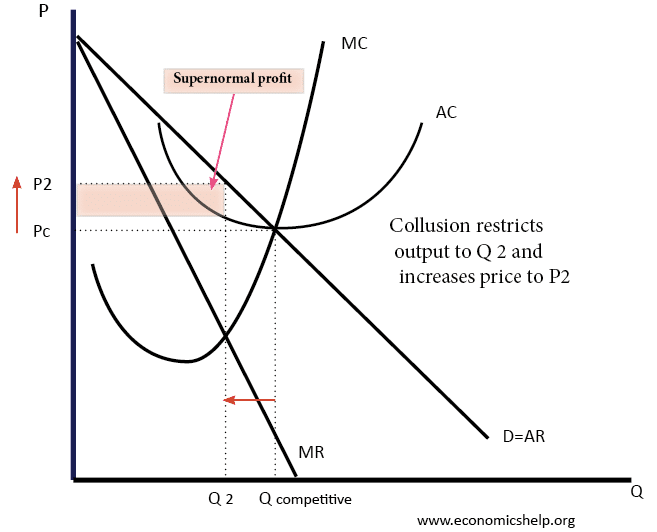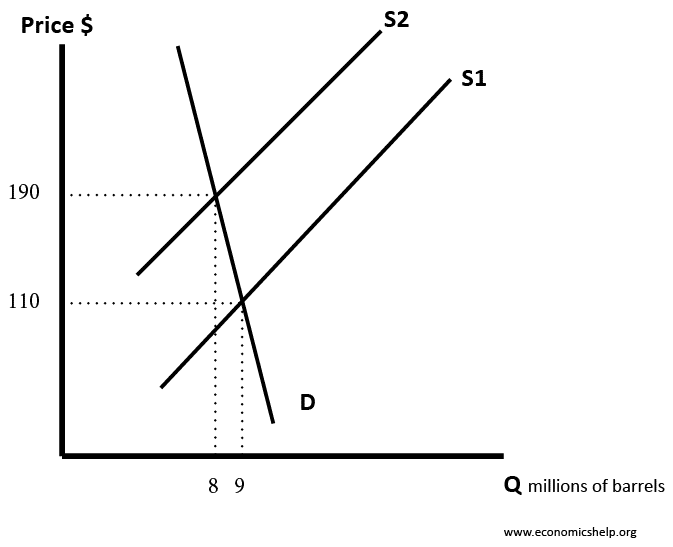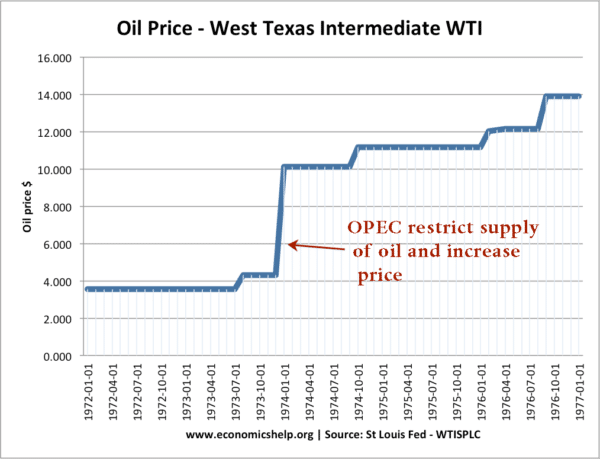A cartel occurs when two or more firms enter into agreements to restrict the supply or fix the price of a good in a particular industry.
A cartel is a formal type of collusion.
Cartels are considered to be against the public interest. This is because cartels aim to:
- Increase price
- Distort normal workings of a competitive market
- Redistribute income in society from consumers to powerful vested interests.
- Successful cartels become an ‘easy’ way to make profit, therefore it may discourage innovation and efficiency gains.
In a competitive market, the output would be Q comp and Price Pc. However, a cartel can maximise profits for the industry by restriction output to Q2 and increasing price to P2.
OPEC cartel
One of the most famous cartels in the world is OPEC Organisation of Petroleum exporting countries. In the 1970s, OPEC was able to triple the price of oil in response to events in the Middle East. They could do this because they controlled over 70% of the world’s oil supply.
Cartels in the UK
In the UK cartels are an example of restrictive trade practices and are outlawed. Firms may still try to tacitly collude and avoid formal cartels.
Breakdown of cartels
Cartels tend to breakdown because firms have an incentive to cheat on their quotas and benefit from high prices and high output. The cartel is more likely to stay together if there are:
- A small number of firms
- Easy to observe the behaviour of other people
- Penalties for breaking quotas.
- Can other firms enter the market? For example, the high price of oil encouraged other countries to start producing oil – causing OPEC to lose their power.
- Can the government intervene to make cartel illegal and punish those involved? In the US and Europe, stiff penalties for managers involved in collusion and setting up cartels.
Related



